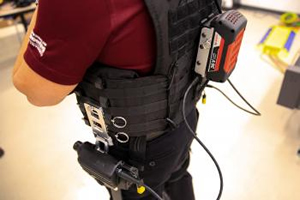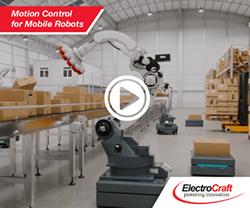ASU's Tom Sugar explores the next step in wearable robotics
 ASU Now: Robots don’t have to be our mortal enemy. In fact, some are designed to enhance human life, like helping overcome disabilities or helping humans perform their jobs.
ASU Now: Robots don’t have to be our mortal enemy. In fact, some are designed to enhance human life, like helping overcome disabilities or helping humans perform their jobs.
Tom Sugar, a professor in the Ira A. Fulton Schools of Engineering at ASU’s Polytechnic Campus, believes robots can improve the human condition. He has developed robotic prosthetics that help people lead normal lives, he has developed systems to cool a soldier and he is working on systems that can help humans perform their jobs.
The reason for the latter is not to take the job away, but to help the human work. For example, a warehouse worker can walk up to 18 miles per day just in doing his or her job, Sugar said. He has developed a device that could help that person.
On April 19–21, a large number of exoskeleton enthusiasts — those from industry, academia and government who are developing and marketing robotics you wear — will get together in Phoenix to talk about and show off some of their latest devices at WearRAcon17. Full Article:
Featured Product

